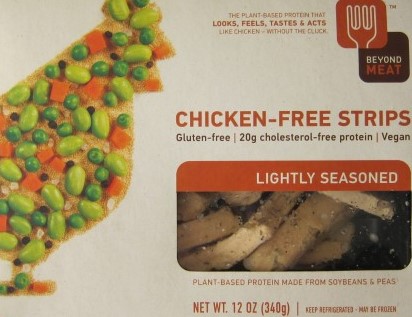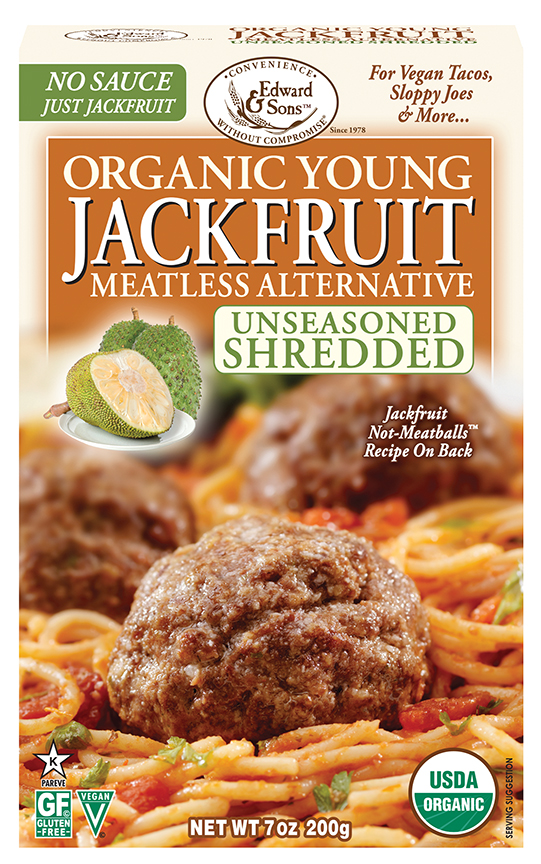Will the Future of Meat Be Plants?
When the Impossible Burger was released, interest and demand was palpable in the kosher community. A vegan burger that really tastes like a hamburger? Perhaps not 100%, but really close? Everyone I knew wanted to try it and flocked to the initial few kosher restaurants that offered it (at prices up to $25). It was soon followed by the Beyond Burger, which was the first to be available at retail (both are now sold in supermarkets as well as in restaurants).
I actually knew the company behind the Beyond Burger from one of their earlier products, Beyond Chicken. Though discontinued (a replacement product is under development), this was one of the first products that was so close to white meat strips, that it actually fooled chef and author Mark Bittman.

I miss those strips but it is clear that by focusing initially on burgers, both companies did something right. They are now sold in thousands of restaurants and markets, enticing vegans and carnivores to try their plant-based alternative meats, reaping in revenue and investments and are both competing fiercely (along with other companies) for global market share. Indeed, their success has brought other company’s offerings out of the vegan and health food aisle and into the meat department, where they are prominently displayed alongside more traditional offerings.
Both companies made being kosher a part of the market strategy, and they are not alone. While some companies do not appear to be eying this market segment, others see it as important to their strategy.

Uptons Naturals is a leader in the plant-based food industry, and a founding member of the Plant Based Food Association. They make a variety of foods based on seitan, a wheat-based meat substitute, and unripe jackfruit, a tropical Asian fruit used to simulate shredded meats. They also make a delicious burger, hot dogs, jerky, and a fish-substitute made from banana blossoms.
Founded in 2006, Uptons has had kosher certification on many of their products from the beginning. “Our first facility was located in Skokie, IL, where up to 60% of the population is Jewish, and one of our first distributors was a kosher foods distributor,” said Natalie Slater, Uptons’ Marketing Manager. They have since grown to about 6,000 retailers, including Amazon’s Whole Foods Market, and 20 countries.
Despite the initial expense, being kosher was always a goal for them, since it is seen by many people as a sign of quality. Their primary agency, the Chicago Rabbinical Council, is both local (an advantage) and globally recognized (Their banana blossom and some products are certified by Kosher Check, a British Columbia-based agency that is also internationally recognized). But there have been challenges.
As with many companies, some of their products are manufactured in places where kosher supervision is difficult. For example, the co-packing facilities they use in Thailand work with non-kosher products, so getting certification for a number of their products produced there is challenging. But they hope to be able to get certification for their non-certified products in the near future.
Unripe jackfruit, when shredded, has a texture not unlike meat, and is found on the menus of many vegan restaurants for a faux-pulled pork or brisket. While not a source of protein like bean or wheat-based foods, it has become very popular.

Edward & Sons has one of the few kosher-certified jackfruit product lines. They have been making shelf stable vegan ingredients for four decades, many of which are kosher certified by North American Kosher or Star-K.
Joel Dee, the CEO and Founder, told Mipikale that they want as many people as possible to enjoy their foods, including those who observe kosher laws. He also noted that many people take the certification as a sign of sanitation and safety.
Being kosher has had its share of challenges, especially when working in places like Sri Lanka and facilities not used to the oversight and segregation that kashrut requires, but they have been successful in making everything work. They try to certify as many products as possible, and only when the cost is unsupportable or there are other limitations do they have an uncertified product.
At Eco-Cuisine, which makes food service mixes, founder Ron Pickarski a classically trained chef and certified meat cutter, was motivated by his failing health condition to become a vegan. This led him to a life long culinary journey to create alternatives to animal-based products. One of the challenges was the time that chefs in food service needed to cost effectively prepare foods that tasted good and were vegan.

His solution, shelf-stable mixes that allow for preparation of fresh meat alternatives, including beef- and chicken-style seitan, broths, puddings, pastries, muffins, and an egg replacer to make scrambled “eggs.” These are more cost effective than fresh or frozen alternatives, have a long shelf life, and are designed to replace meat on the menu rather than creating new labor-intensive menus. Sold to food service through major food distributors, consumers can also buy bulk quantities through Amazon.
After a request from a customer, Ron decided to explore making his product kosher. Based in Denver, he turned to Scroll-K on the recommendation from other local manufacturers that had worked with the agency . Scroll-K is recognized by all major national kosher agencies. “It was a fairly easy decision to go kosher. All of our ingredients were already kosher, and the result is an expanded market.” The products are pareve, so can be used in both dairy and meat kitchens.

Another product with a similar approach is Nature’s Prime, which makes soy-protein-based dry mixes to create cutlets, nuggets and slices. They also sell their product as frozen ready-to-cook. Most of their products are certified kosher (OU) and halal.
The meat industry has pushed for regulations that would label plant-based meat as artificial or imitation, and to prohibit the use of words like “meat,” “beef,” “chicken,” and even “burger” in packaging, claiming customer confusion. But the big challenge for plant-based meats may come not from this opposition (many of whom are investing in the companies making these new products), but rather from the potential disruption to both animal and plant-based meats by cellular agriculture.



